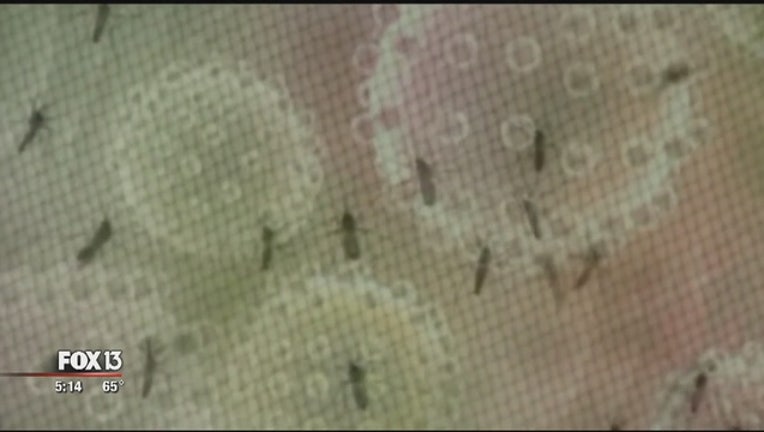CDC investigating mystery transmission of Zika virus

WASHINGTON (FOX 13) - The CDC announced today that a Zika patent who died in Utah had very high viral levels in his blood; more than 100,000 times higher than what has previously been described.
The man, described as elderly and Caucasian, had traveled to a Zika-affected area prior to developing symptoms. There is no new information about what underlying medical conditions he may have had, whether he may have been immunocompromised, or if the Zika virus was the cause, or a contributory factor, in his death.
New today is a report that a family contact of the deceased man was also diagnosed with Zika. That person does not reside in the same home, denies traveling to a Zika-affected area, and did not have sexual contact with the patient. It is unknown how Zika was transmitted. The contact was described as having a more typical, rapidly resolving infection.
Other family members and contacts are also being tested to determine if the virus was spread to anyone else who had contact with the deceased man.
A CDC Emergency Response Team is now assisting the Utah Health Department in studying the case. According to the press release, the team includes experts in infection control, virology, mosquito control, disease investigation, and health communications.
The team is now collecting mosquitos from the Salt Lake City area. Although the kinds of mosquitos known to carry the virus -- Aedes aegypti and Aedes albopictus -- are not typically found in that region, they are also testing other types of mosquitos in the area.
Experts say they are not "taking anything off the table" as far as the investigation goes, but are doubtful that the virus was spread by a different type of mosquito, like the Culex, a species that is present in Utah.
There is no evidence that the virus was spread through the air, but they are investigating all possibilities. Universal precautions, a practice applied to all hospital patients, was suggested when caring for someone actively infected with the virus.

